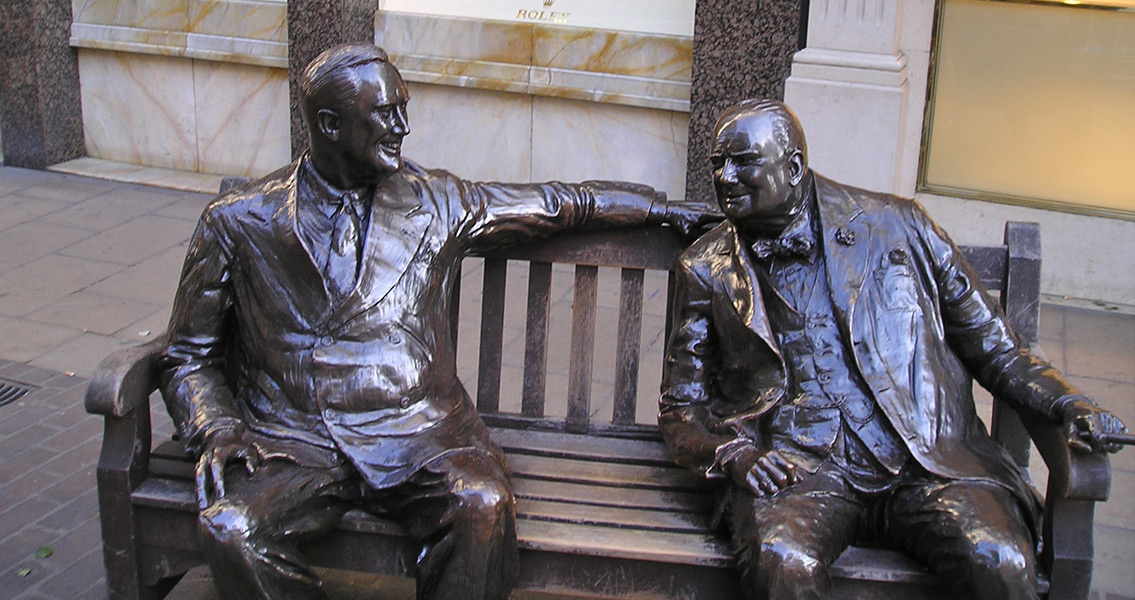<![CDATA[President Franklin D. Roosevelt announced to Congress on 3rd September, 1940, that a deal had been agreed between the United States and Great Britain exchanging fifty U.S. Navy Destroyers for British overseas naval and air bases. In the Destroyers for Bases agreement, the US won 99 year leases to bases in the Bahamas, Newfoundland, Jamaica, St. Lucia, Trinidad, Antigua and British Guiana. In exchange, Britain received fifty 1,200 ton US destroyers, which came to be referred to as 'town-class' by the British Navy. Within three days of the agreement being signed the first six vessels were shipped from the United States. With the bases in American hands, Nazi Germany could not attack and occupy the territories close to the United States under the pretext of its war with Britain. In that sense, it could be seen as an attempt to keep the war in Europe at a safe distance. For Britain, a growing fear that Germany would launch a naval attack across the English Channel, combined with its military resources having been stretched during the retreat from France and the failed Norwegian campaign, left the country in dire need of new warships. For a number of reasons the Destroyers for Bases Agreement was hugely controversial. In the midst of an intense domestic debate in the United States over intervention or continued isolation in regards to the war between Britain and Nazi Germany, the deal seemed to push the definition of American neutrality right to its limit. Secondly, Roosevelt had brokered the entire deal without consulting Congress, with the first news of its existence coming with the announcement on 3rd September. This seemed a calculated move, designed to prevent the issue becoming embroiled in the intense public debate over US interventionism described above by bypassing the democratic process. Questions were raised over the legality of the move, and to this day just how far Roosevelt overstepped his presidential prerogative is still heavily debated. Finally, the deal had global significance. The Destroyers for Bases Agreement, which was driven by Britain's desperation for military aid during the height of the Battle of the Britain, inevitably came across as one-sided. The ships sent to Britain were not of military use to the United States. Conversely, the US gained access to vital military bases which would help secure it against foreign attack, and allow it to further extend its influence into the Caribbean and Latin America. Roosevelt's announcement on the 3rd September concerning the Destroyers for Bases Deal stressed that it was geared towards shoring up the United States' defence and had no relevance to American neutrality, "Under present circumstances this exercise of sovereign right is essential to the maintenance of our peace and safety. This is the most important action in the reinforcement of our national defense that has been taken since the Louisiana Purchase. Then as now, considerations of safety from overseas attack were fundamental." Exactly why Roosevelt agreed to the Destroyers for Bases Agreement will never be known. It could have been an opportunist move to take advantage of Britain's desperation during its war with Germany, an attempt to aid Britain in anticipation of eventual US involvement in the war, or a genuine move to secure the USA's borders. Whatever the case, the controversial agreement highlights the often clandestine diplomacy that underpinned the Second World War.]]>
Roosevelt Announces Destroyers for Bases Agreement
